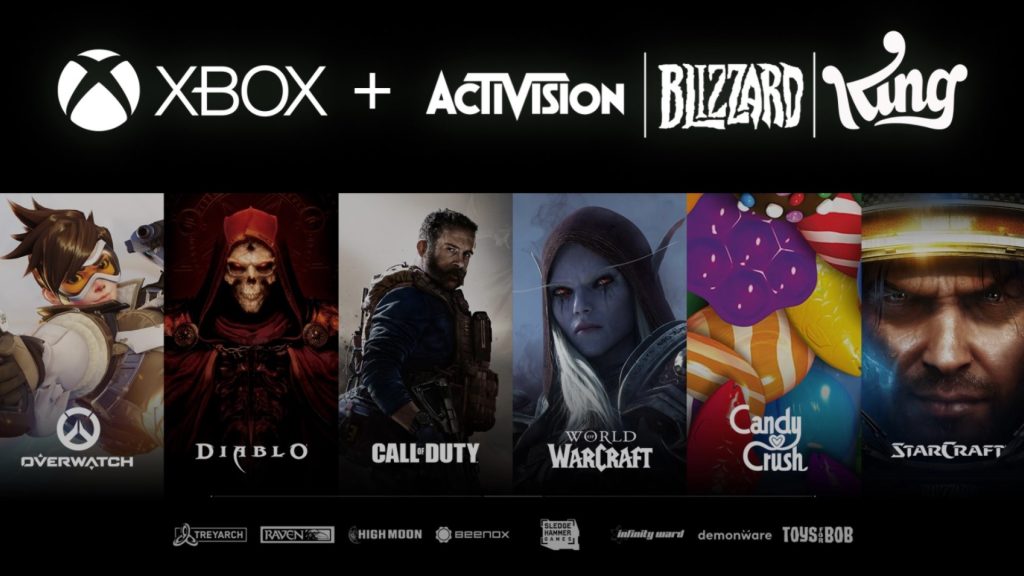After rumors to the contrary, the Competition and Markets Authority in the UK has officially prevented Microsoft’s planned acquisition of Activision Blizzard. Though it previously said the deal wouldn’t harm competition in the console gaming market in its provisional findings, the decision is due to concerns that it “would alter the future of the fast-growing cloud gaming market, leading to reduced innovation and less choice for UK gamers over the years to come.”
The final decision fell on Microsoft’s failure to provide a solution for cloud gaming concerns, which the CMA outlined last February. Microsoft already makes up about 60 to 70 percent of cloud gaming services worldwide, and other strengths like commanding the largest PC OS market share with Windows. The CMA felt that having Actvision’s titles exclusive to its cloud service would benefit it immensely, not to mention the advantage of control over franchises like Call of Duty, Overwatch and World of Warcraft.
Without the merger, Activision’s games could be available on other cloud platforms, providing more choices. “Allowing Microsoft to take such a strong position in the cloud gaming market just as it begins to grow rapidly would risk undermining the innovation that is crucial to the development of these opportunities,” it said.
Microsoft did provide a proposal addressing some concerns, but the CMA said this had a “number of significant shortcomings connected with the growing and fast-moving nature of cloud gaming services.” They are as follows:
- It did not sufficiently cover different cloud gaming service business models, including multigame subscription services.
- It was not sufficiently open to providers who might wish to offer versions of games on PC operating systems other than Windows.
- It would standardize the terms and conditions on which games are available, as opposed to them being determined by the dynamism and creativity of competition in the market, as would be expected in the absence of the merger.
“Given the remedy applies only to a defined set of Activision games, which can be streamed only in a defined set of cloud gaming services, provided they are purchased in a defined set of online stores, there are significant risks of disagreement and conflict between Microsoft and cloud gaming service providers, particularly over ten years in a rapidly changing market.
“Accepting Microsoft’s remedy would inevitably require some degree of regulatory oversight by the CMA. By contrast, preventing the merger would effectively allow market forces to continue to operate and shape the development of cloud gaming without this regulatory intervention.”
While the CMA did consider the benefits of the merger, especially with Activision content on Game Pass, it felt the merger would cause more harm to competition and players in the UK. It may even provide an “incentive for Microsoft to increase the cost of a Game Pass subscription post-merger to reflect the addition of Activision’s valuable games.”
Martin Coleman, chair of an independent panel of experts on the investigation, said, “Gaming is the UK’s largest entertainment sector. Cloud gaming is growing fast with the potential to change gaming by altering the way games are played, freeing people from the need to rely on expensive consoles and gaming PCs and giving them more choice over how and where they play games. This means that it is vital that we protect competition in this emerging and exciting market.
“Microsoft already enjoys a powerful position and head start over other competitors in cloud gaming, and this deal would strengthen that advantage giving it the ability to undermine new and innovative competitors. Microsoft engaged constructively with us to try to address these issues, and we are grateful for that, but their proposals were not effective to remedy our concerns and would have replaced competition with ineffective regulation in a new and dynamic market.
“Cloud gaming needs a free, competitive market to drive innovation and choice. That is best achieved by allowing the current competitive dynamics in cloud gaming to continue to do their job.”
With the Federal Trade Commission filing a lawsuit to prevent the merger in the United States, it’s not looking good for Microsoft. Stay tuned for further updates in the meantime.















